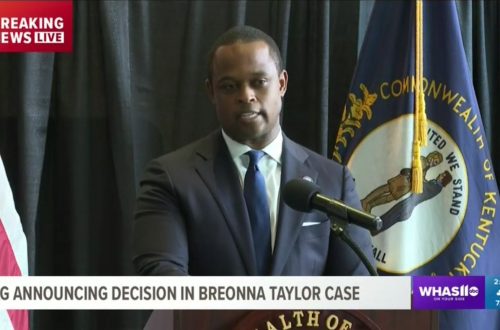
Several years ago, I attended a conservative Presbyterian church as an associate member. This was a bit of a strange fit, since I was still a Baptist in my ecclesiological convictions. In my interview with the elders to become an associate of the church, they asked me if I took any exceptions with the Westminster Confession of Faith, the doctrinal standard of the Presbyterian Church in America. I had read through the confession in preparation for the interview and had come up with two things.
First, I told them that I did not believe in infant baptism but held to believer’s baptism. Surprisingly, that was okay with them! Second, I told them that I could not agree with the Confession’s statement that the Pope is the antichrist (WCF 25.6). To my mind then and now, that aspect of the Confession seemed a bit over-the-top and not born out by history or the Bible in any clear way. It certainly was not a hill that I was willing to die on, so I cited it as an objection. Surprisingly, again, this exception was okay with them too. It turned out that the Presbyterian Church in America had excised this portion of the Confession from the one that they were using at that time.
We Protestant evangelicals would all do well to excise this kind of blanket dismissal from our statements about the Pope. I think that Francis Schaeffer’s principle of “co-belligerency†still provides a useful model for how we as evangelicals relate to Roman Catholics in general and to the Pope in particular. Co-belligerence means that we evangelicals can stand together with Roman Catholics in our fight against the pervasive secularism that is overtaking western culture. We are united in our belligerence.
But unity in belligerence does not mean unity in confession. The historic theological differences that divide Roman Catholics and Evangelical Protestants still exist. Even though we Protestants still do not agree with Roman Catholics about issues such as the Apostolic succession of the Pope, the meaning of the sacraments, and the doctrine of Justification, this fact should not keep us from standing together against evils such as abortion and gay “marriage.â€
A good example of this kind of co-belligerence occurred this week in a televised discussion about the senate filibustering of President Bush’s judicial appointments. Al Mohler appeared on the news program Scarborough Country on MSNBC and went to bat for a Catholic judge whose nomination is being filibustered because he is pro-life. Al Mohler is a reformed and Baptist in his theology and hardly sympathetic to Roman Catholicism on a number of issues (click here). Yet during the debate, he announced: “I‘m an evangelical Christian, but I‘m going to speak up on behalf of that man, who is a Roman Catholic, who holds to his church‘s teachings on abortion†(click here for transcript).
The posture that Francis Schaeffer, Al Mohler, and others advocate is not an ecumenism that ignores, minimizes, or compromises on the fundamental doctrines of Evangelical faith. Rather, it is what Timothy George called “an ecumenism of the trenches.â€[1] That is, a united fight against the cultural onslaught. Al Mohler writes:
“Given the cultural disaster we face, and what is at stake, it simply makes sense for men and women who share basic worldview concerns to gather strength from each other, join hands and hearts, and enter the cultural fray. On this point, all but the most extreme separatists among us would agree.â€[2]
Evangelicals should welcome the new Pope with a spirit of co-belligerence. While not compromising the “solas†of the Reformation, we can be thankful that there will be another voice in the public square opposing the downgrade of western culture. Pope Benedict XVI has taken public and outspoken stances against stem-cell research, abortion, homosexuality, relativism and more.[3] While we are not united with the Pope in our confession, we can stand with him in our belligerence.
For more on this controversial topic, I recommend the following article: R. Albert Mohler, Jr., “Standing Together, Standing Apart: Cultural Co-belligerence Without Theological Compromise.â€
_____________________
[1]Quoted in R. Albert Mohler, Jr., “Standing Together, Standing Apart: Cultural Co-belligerence Without Theological Compromise,†Touchstone July/August (2003).
[2]Ibid.
[3]For these reasons, his election has frustrated liberal Roman Catholics around the world (Ian Fisher, “German Cardinal Is Chosen as Pope,†New York Times, April 20, 2005).




3 Comments
Joel A. Patrick
Great post Dr. Burk! I totally agree. While I didn’t see eye to eye or approve of the doctrinal stances that Pope John Paull II held I still think he, in many ways, had a very good impact on our world. It looks as if the new Pope will follow in a similar pattern.
Stephanie
Hey! I saw you were a professor at Criswell!! Hey do you know my buddies Dr Harris and Dr Allen? Dr Allen has been my pastor for the last 5 years…Well anyway, I plan on going to Criswell and I thought I’d get acquainted with some of ya’ll. Have a great day!
Denny Burk
Stephanie,
Yes, I know Dr. Allen. He left Criswell as I was coming to Criswell, but we still got to meet. He’s a great preacher. I’m so glad your coming here, and I lood forward to meeting you.
Dr. B.